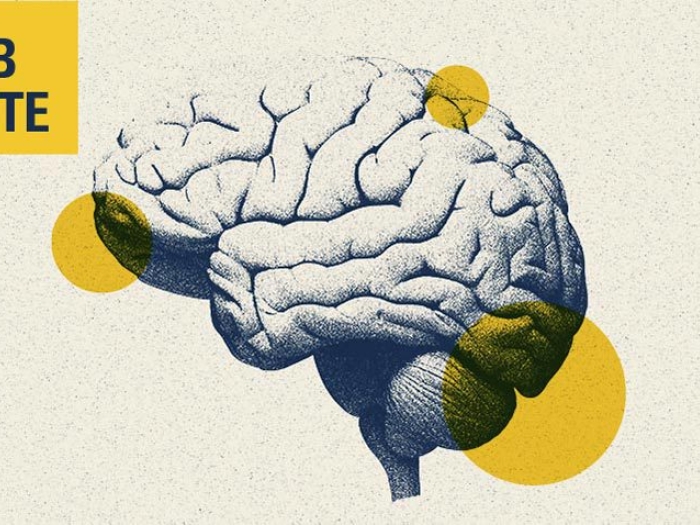National study shows wide variation in likelihood of being diagnosed with Alzheimer’s disease or another form of dementia, even after many factors are taken into account
7:00 AM
Author |

With new medications on the market or in the works for Alzheimer’s disease and other kinds of dementia, a study suggests that getting the diagnosis needed to access these new treatments may depend on where you live.
The percentage of people who get a new dementia diagnosis each year varies a lot across regions of the United States, the study finds.
And the differences between regions of the country are even larger for people on the young end of the dementia risk age range, ages 66 to 74, and for those who are Black or Hispanic.
In fact, the same person would have as much as twice the chance of getting a dementia diagnosis in some areas of the U.S. as in others, the study shows.
SEE ALSO: Dementia’s financial and family impact
The findings suggest that the chance of being diagnosed may be more about the health system than about individual factors that affect dementia risk.
A formal diagnosis is required for access to advanced new tests and treatments for dementia.
Many of them aim to slow down the progression of dementia in its earliest stages, called mild cognitive impairment or mild Alzheimer’s disease.
The study focuses on regional differences in “diagnostic intensity” of dementia – the kind of difference that exists even after all kinds of dementia risk factors and regional differences in population and health care are taken into account.
Performed by a team based at the University of Michigan, it’s published in Alzheimer's & Dementia: The Journal of the Alzheimer's Association.
For communities and health systems, this should be a call to action for spreading knowledge and increasing efforts to make services available to people. And for individuals, the message is that you may need to advocate for yourself to get what you need, including cognitive checks."
-Julie Bynum, M.D., M.P.H.
“These findings go beyond demographic and population-level differences in risk, and indicate that there are health system-level differences that could be targeted and remediated,” said Julie Bynum, M.D., M.P.H., the U-M Health geriatrician and health care researcher who led the study.
“The message is clear: from place to place the likelihood of getting your dementia diagnosed varies, and that may happen because of everything from practice norms for health care providers to individual patients’ knowledge and care-seeking behavior,” said Bynum, a professor of internal medicine at the U-M Medical School.
“But the good news is, these are things we can act on once we know where to look.”
Bynum and her colleagues at U-M and the Dartmouth College Geisel School of Medicine did the study using data from the records of 4.8 million people who were covered by traditional Medicare and over the age of 66 in 2019.
They note that while nearly 7 million Americans currently have a diagnosis of dementia, millions more likely have symptoms but no formal diagnosis.
Insurance coverage for new biomarker tests, brain imaging scans and dementia-slowing medications depends on diagnosis.
But even for those who don’t qualify for these, a confirmed diagnosis can be important for accessing specialized care and support for patients and their family members or friends who act as caregivers.
Going beyond risk factors
Researchers have already found many factors that are linked to an individual’s higher risk of developing Alzheimer’s disease and other forms of dementia.
These include years of high blood pressure, high cholesterol and tobacco or alcohol use, to lower levels of formal education, sleep and social interaction.
But the study shows for the first time that the differences in diagnosis by region aren’t explained by differences in the dementia risk level of different populations.
It looked at diagnoses within each of 306 hospital referral regions developed for the Dartmouth Atlas of Health Care and used in many studies.
Each HRR, short for hospital referral regions, includes at least one hospital capable of doing advanced heart surgery and brain surgery; the researchers chose to use these regions because dementia diagnosis and advanced treatment also requires specialized services.
In all, 143,029 of the people in the total population used in the study were newly diagnosed with Alzheimer’s or another form of dementia in 2019.
The rest of the 356,656 people who had that diagnosis in this population had been diagnosed before 2019.
That means that overall, about 7% of people covered by traditional Medicare have a dementia diagnosis at any given time, and 3% of this population is diagnosed each year, with an average age at diagnosis of about 83 years.
The researchers then calculated the regional rates of new diagnoses and total diagnosed individuals as of 2019 for each HRR.
The prevalence of diagnosed dementia ranged from as low as 4% to as high as 14% depending on HRR, and the rate of new dementia diagnoses in 2019 ranged from 1.7% to 5.4%.
They then looked at rates for three age groups – 66 to 74, 75 to 84 and 85 and over – and for people identified as white, Black or Hispanic.
They also included data about the percentage of the population in each HRR that had less than a high school education, that smoked, and that had obesity or diabetes – all risk factors for dementia.
They also incorporated information about the general intensity of all kinds of chronic disease diagnosis in each HRR.
By taking all these factors into account, the researchers were able to calculate a predicted rate of diagnosis for new and total Alzheimer’s and dementia cases for each HRR, and for individuals in each HRR. This is what they called diagnostic intensity.
Compared to the national average, people residing areas of the lowest-intensity are 28% less likely to be diagnosed, whereas those residing in areas of the highest-intensity are 36% more likely to be diagnosed.
The general concentration of diagnosed dementia cases was highest in the southern U.S., similar to the “stroke belt” of high risk for stroke and cardiovascular disease.
But the South was no longer a uniform hotbed of dementia diagnosis once the researchers adjusted for the other factors.
Implications for regional change
Bynum explains that the findings could reflect variations in clinical practices – for example, how often people are screened by their primary care physicians for early signs of dementia, or the availability of specialists to make a confirmed diagnosis.
Variation could also stem from cultural or personal differences in how likely a person is to seek care of any kind, to schedule an appointment specifically because of memory concerns, or to mention problems with memory or thinking proactively to a health care provider without being prompted during an existing appointment.
While the researchers can’t say for certain if the variation reflects underdiagnosis or overdiagnosis, they do say that the areas with lower-than-expected diagnosis rates for dementia could use the new findings to look at what barriers might stand in the way of someone getting diagnosed.
“The goal these days should be to identify people with cognitive issues earlier, yet our data show the younger age group of Medicare participants is the one with the most variation,” Bynum said.
“For communities and health systems, this should be a call to action for spreading knowledge and increasing efforts to make services available to people. And for individuals, the message is that you may need to advocate for yourself to get what you need, including cognitive checks.”
She adds that Medicare covers a cognitive screening during each enrollee’s annual wellness visit.
She also notes that the recent launch of Medicare’s GUIDE model for dementia care may offer a path to improving care. The model incentivizes clinical practices to coordinate dementia care better and offer around-the-clock access to a trained provider.
Additional authors: In addition to Bynum, the study’s authors are Slim Benloucif and Jonathan Martindale of the U-M Department of Internal Medicine, A. James O’Malley of Dartmouth College and Matthew A. Davis, Ph.D., of the U-M School of Nursing and the U-M Medical School’s Department of Learning Health Sciences.
Bynum and Davis are members of the U-M Institute for Healthcare Policy and Innovation, and leaders of the Center to Accelerate Population Research in Alzheimer’s or CAPRA.
Full details about the diagnostic intensity rate and other data for each HRR will be available on the CAPRA website and at https://michmed.org/38XeZ.
Funding/disclosures: The study was funded by the National Institutes of Health’s National Institute on Aging (P01AG019783). This content is solely the responsibility of the authors and does not necessarily represent the official views of the National Institute on Aging.
Citation: “Regional variation in diagnostic intensity of dementia among older U.S. adults: An observational study,” Alzheimer’s and Dementia. DOI: 10.1002/alz.14092
Sign up for Health Lab newsletters today. Get medical tips from top experts and learn about new scientific discoveries every week by subscribing to Health Lab’s two newsletters, Health & Wellness and Research & Innovation.
Sign up for the Health Lab Podcast: Add us on Spotify, Apple Podcasts or wherever you get you listen to your favorite shows.

Explore a variety of health care news & stories by visiting the Health Lab home page for more articles.

Department of Communication at Michigan Medicine

Professor

Want top health & research news weekly? Sign up for Health Lab’s newsletters today!





